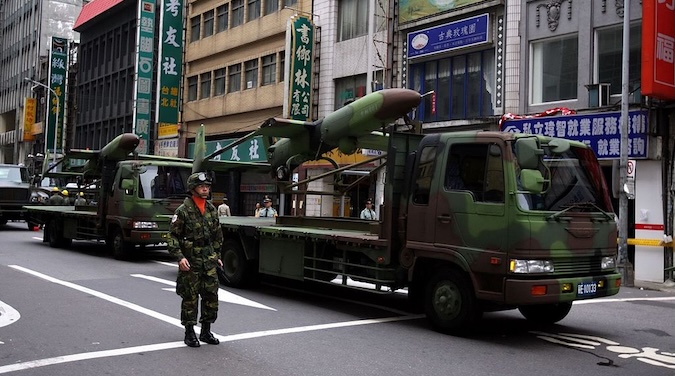In this book review of Paul Lushenko and Shyam Raman’s The Legitimacy of Drone Warfare: Evaluating Public Perceptions, Joseph Chapa examines how the authors purport to do four things: 1) deliver empirically verifiable differences in how citizens of various countries perceive the legitimacy of drone warfare (in this case, the US and France); 2) offer… Continue reading The Legitimacy of Drone Warfare: Evaluating Public Perceptions
Category: Issue Archive
One China Reality Check: The Manipulation of Risk and the Myth of Strategic Ambiguity
Benjamin W. Haight explores the intricate dynamics of US-China relations, particularly focusing on the contentious issue of Taiwan. Drawing on historical perspectives from Carl von Clausewitz and Thomas Schelling, Haight delves into the concept of risk as a policy instrument, originally framed in the context of nuclear deterrence but now highly relevant to the modern… Continue reading One China Reality Check: The Manipulation of Risk and the Myth of Strategic Ambiguity
Hard Cash and Easy Money: Funding Authority for Security Force Assistance Brigades
Maj. Kier Elmonairy evaluates how well today’s security force assistance (SFA) fiscal authorities support the Army’s Security Force Assistance Brigades (SFABs) in conducting their critical mission in an era of great power competition. Elmonairy first surveys the organizations the Army uses to conduct SFA, looking at how Army Special Forces and SFABs complement each other… Continue reading Hard Cash and Easy Money: Funding Authority for Security Force Assistance Brigades



